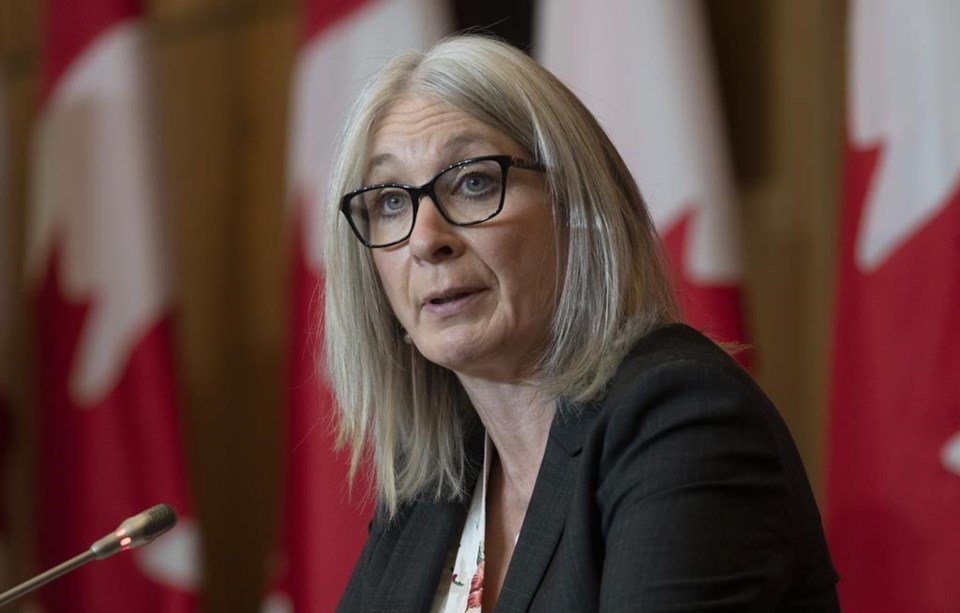A First Nation in northern Ontario is waiting for military assistance a week after declaring an emergency over a COVID-19 outbreak that has now infected nearly half of its 400 residents.
Members of Bearskin Lake First Nation say the situation – which has many in the community isolating, including the chief – means there are few essential workers available to provide basic services and distribute supplies to households, including food, water and wood.
Nishnawbe Aski Nation Grand Chief Derek Fox said the community, of which he is a member, needs military personnel on the ground immediately to help. He said the federal government wasn't taking the situation seriously enough and hasn't provided all the help required.
"The government is saying they need to do all the paperwork and go through the bureaucracy, jump through more loopholes. Meanwhile, the chief and the council (are) overwhelmed," he said in a phone interview.
"They're not acknowledging that this is a crisis. And we feel like it's a wait-and-see approach and hope that no one loses their life over this."
Late Thursday, Public Safety Minister Bill Blair said on Twitter that the federal government had just received a formal request for assistance from the Ontario government for Bearskin Lake First Nation.
Blair said officials from his department and Indigenous Services Canada "will work closely and quickly to ensure the community receives support during their time of need."
Charles Fox, a member of the community and a former Ontario regional chief, said there are 197 cases of COVID-19 in the community, including among people critical to delivering necessary supplies.
"There's only one water truck left, one sewage truck left, and the drivers themselves, they're coming in even though they're positive (with COVID-19)... as long as they are alone," he said.
"We need the army to come and provide the manpower for loading of freight, distribution supplies, hampers, and we need people to drive all the people to the swabbing centre."
About 20 local volunteers are delivering basic food supplies to every household in the community that has been in a lockdown since last week, he said.
The volunteers have to drive about 16 kilometres to the airport to unload the supplies from planes, and then load a few half-ton trucks they have before driving back to the community's school, which has been turned to a distribution centre.
There, they put together food hampers for every household, he said.
After they deliver the supplies to the community's 116 homes scattered around a lake, the volunteers travel again for nearly 30 kilometres outside the community to cut logs for wood to heat each home.
Indigenous Services Minister Patty Hajdu said the government is looking into the First Nation's request for 40 military personnel to help the community.
Hajdu said she has contacted Defence Minister Anita Anand about the request, which will be processed as soon there is more clarity on the skill sets that are needed to help the First Nation.
"We're working through that request with the province of Ontario to understand what kinds of people they need and what kinds of roles these people would have for logistics," she said in an interview.
Hajdu said her department has allocated about $1.2 million to increase isolation capacity, provide supplies and cover the costs of transportation to the community.
"We continue to support the community with the kinds of financial resources that they need for managing the outbreak," she said.
Bearskin Lake First Nation is among 32 of the 49 Nishnawbe Aski Nation communities that are only accessible by planes, Grand Chief Derek Fox said.
The community, like many others in the area, doesn't have a hospital, an emergency unit or even a doctor on call, he said.
He said 12 of the communities his organization represents have confirmed COVID-19 cases among their on-reserve residents. The total tally is nearing 300 cases.
"We're not like Toronto, we're not like Thunder Bay. We don't have a hospital unit. We don't have somewhere that our people should they get extremely sick go to," he said.
"They count on a plane to fly and land... if a plane tries to land, they're counting on a good weather first of all, which we get a lot of bad weather in the wintertime and half the time people can't land."
The Bearskin Lake First Nation is located about 425 kilometres north of Sioux Lookout, Ont. They declared a state of emergency last week when COVID-19 started spreading among the on-reserve population.
This report by The Canadian Press was first published Jan. 6, 2021.
Maan Alhmidi, The Canadian Press

